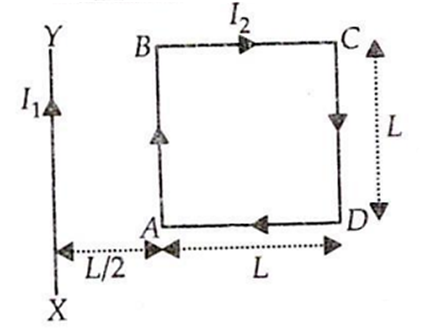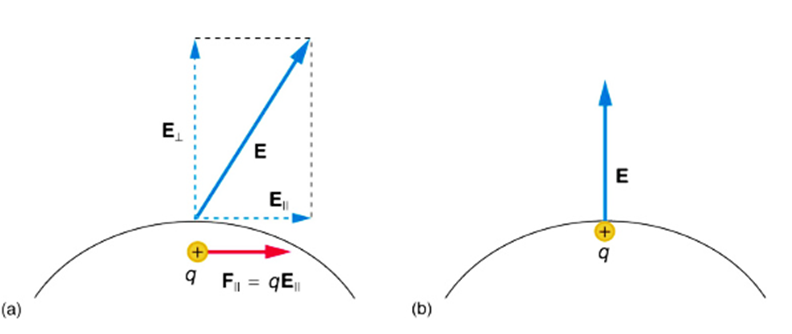 Multiple Choice Questions
Multiple Choice QuestionsTwo spherical conductors B and C having equal radii and carrying equal charges in them repel each other with a force F when kept apart at some distance. A third spherical conductor having same radius as that of B but uncharged, is brought in contact with B, then brought in contact with C and finally removed away from both. The new force of repulsion between B and C is
Three equal charges, each having a magnitude of 2.0 x 10-6 C, are placed at the three corners of a right angled triangle of sides 3 cm, 4 cm and 5 cm. The force (in magnitude) on the charge at the right angled corner is
50 N
26 N
29 N
45.9 N
Two charges of + 10 μC and +20 μC are separated by a distance 2 cm. The net potential (electric) due to the pair at the middle point of the line joining the two changes, is
27 MV
18 MV
20 MV
23 MV
The charges on two spheres are + 7 µC and -5C respectively. They experience a force F. If each of them is given an additional charge of -2 µC, then the new force of attraction will
F
2F
A square loop ABCD, carrying a current I2, is placed near and coplanar with a long straight conductor XY carrying a current I1, as shown in figure. The net force on the loop will be

Three identical charges are placed at the vertices of an equilateral triangle. The force experienced by each charge, ( if k = 1/4 ) is
The angle of dip at a certain place where the horizontal and vertical components of the earth's magnetic field are equal is
30o
75o
60o
45o
Assertion: Lines of force are perpendicular to conductor surface.
Reason: Generally electric field is perpendicular to equipotential surface.
If both assertion and reason are true and reason is the correct explanation of assertion.
If both assertion and reason are true but reason is not the correct explanation of assertion.
If assertion is true but reason is false.
If both assertion and reason are false.
A.
If both assertion and reason are true and reason is the correct explanation of assertion.
The electric field lines are perpendicular to its surface, ending or beginning on charges on the surface.

Above figure shows electric field E is applied to a conductor, free charges inside the conductor move the field is perpendicular to the surface.
(a) The electric field is a vector quantity, with both parallel and perpendicular components. The parallel components (Ell) exerts a force (Fll) on the free charge q, which moves the charge until Fll = 0
(b) The resulting field is perpendicular to the surface. The free charge has been brought to the conductor's surface, leaving electrostatics forces in equilibrium.
Equipotential lines are always perpendicular to the electric field. In three dimensions, the lines form euipotential surfaces
The force per unit length between two straight conductors separated by a distance of 0.02 m is 2 x 10-3 N m-1. The current in one conductor is 10 A and that in the other conductor is
20 A
5 A
2 A
10 A
